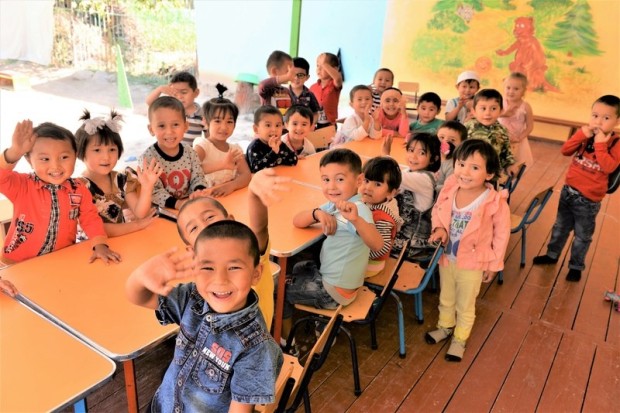Investing in People (Education News and Research 148)
The World Bank’s Board of Executive Directors approved a €90 million loan to Georgia for the Innovation, Inclusion and Quality Project, which will support the development of human capital through greater access to preschool education, higher quality education, and improved learning environments. “Georgia is committed to investing in its people,” said Mercy Tembon, World Bank Regional Director for the South Caucasus.” These reforms will constitute a significant change in Georgia’s approach to education, and will help prepare the country for the labor market and economy of the 21st century,” says Soren Nellemann, World Bank Senior Economist and the Task Team Leader for the Project.

The World Bank’s Board of Executive Directors approved a project that will help increase access to and improve the quality of early childhood education in Uzbekistan. The $73.85 million Promoting Early Childhood Development Project is financed through a $59.5 million credit from the International Development Association (IDA) and grants from the Global Partnership for Education (GPE) and the Global Partnership for Results-Based Approaches (GPRBA) in the amount of $14.35 million. “Investment in young children’s education is a highly effective means to promote human capital development from an early age and ultimately drive economic growth in Uzbekistan”, said Hideki Mori, World Bank Country Manager for Uzbekistan. “The government of Uzbekistan recognizes the importance of the issue, and this project supports their aspiration to achieve both increased access to and better quality in early childhood education.” The project is expected to stimulate public-private partnership development through a social impact bond – an innovative financing mechanism – that ties financial returns and payments to rigorously measured results. Under this scheme, 140 private preschools located in urban areas of Uzbekistan will deliver appropriate educational services so that the Government can concentrate funds in rural areas.
World Bank Chief Executive Officer Endorses Investments in Human Capital During Romania Visit | Kristalina Georgieva, World Bank Chief Executive Officer (CEO), emphasized the importance of investing in human capital for economic success in an era of technological transformation. Her remarks came during her two-day visit to Romania in a speech at National University for Political Studies and Public Administration (SNSPA) where Ms. Georgieva was awarded a Doctor Honoris Causa for lifetime achievements by the Rector of the University, Mr. Remus Pricopie…The World Bank is already assisting Romania to invest more and invest smarter in quality educational programs. The Romania Secondary Education Project (‘ROSE’) provides grants of around €100,000 per initiative to under-performing schools in struggling areas to facilitate investments in remedial classes, tutoring, counselling, coaching, and extracurricular activities. These grants have helped more than 250 under-performing schools decrease drop-out rates – from 6.5 percent in 2014 to 3 percent in 2018 – and increase graduation rates – from 86.9 percent in 2014 to 94.6 percent in 2018…
Visit to Politehnica University Bucharest, Romania The Bank met with the teams funded by the Romania Secondary Education Project (ROSE) and implemented in the Politehnica. Thus, grant directors, teachers and students (direct beneficiaries of projects) had the opportunity to express their views on the benefits and impact of the implemented activities. “I trust that the experience, dialogue and proposals shared today are potential prerequisites for future funding in support of national education and strengthening the social responsibility of universities. I would also like to thank Mrs. Mariana Moarcas – Senior Education Specialist of the World Bank and the representatives of the Project Management Unit, Mrs. Liliana Preoteasa, along with the team they are coordinating, who were present at the meeting and have contributed significantly to the good implementation of the projects won by our university!” said Mihnea Costoiu, Rector of POLITEHNICA.
What impact will the changing pattern of returns to education have on inequality? See my latest working paper:

Other
Household Expenditure on Higher Education
The effect of education on health: Evidence from the 1997 compulsory schooling reform in Turkey | schooling (and earnings effects) shown | but no impact on health
